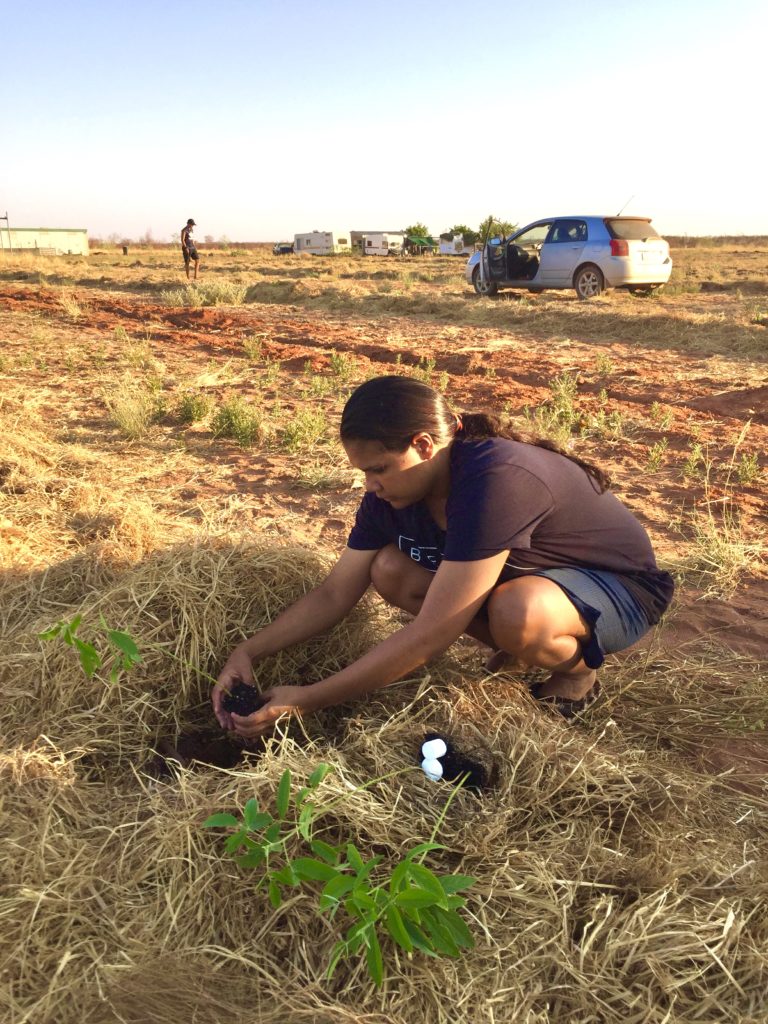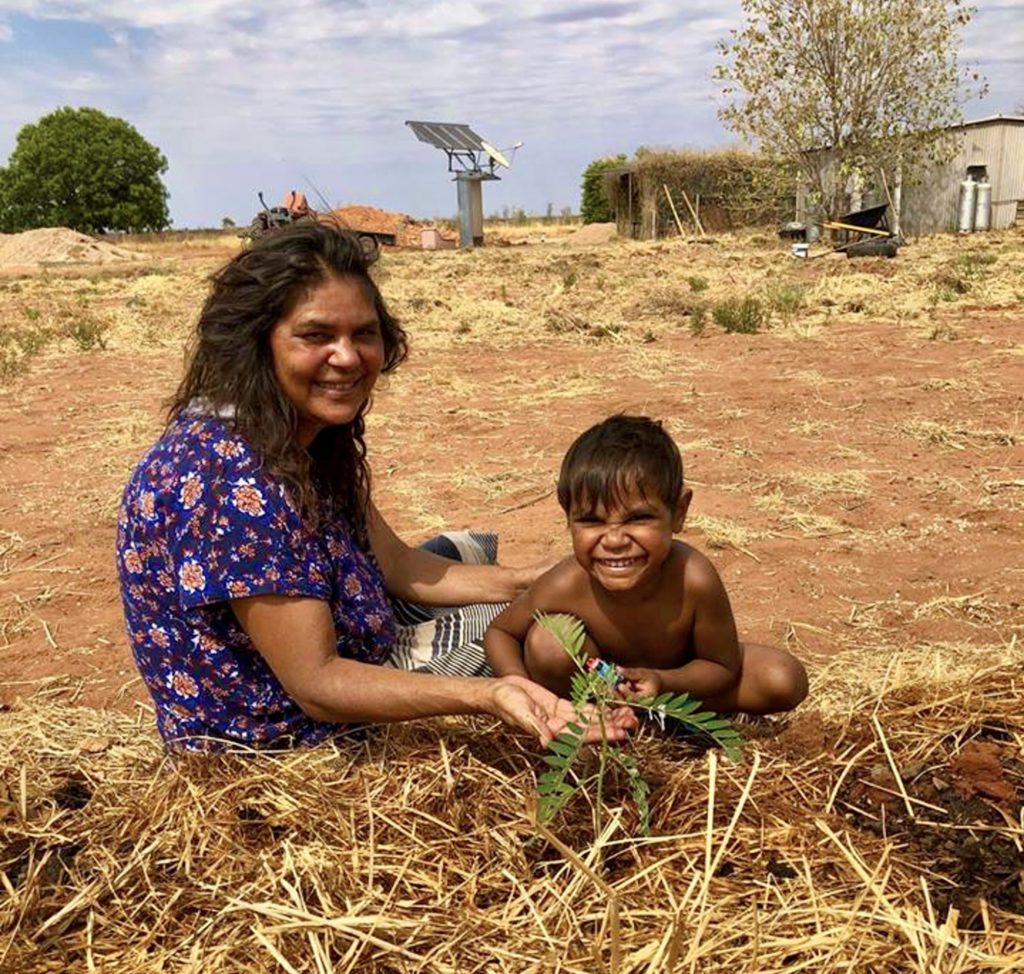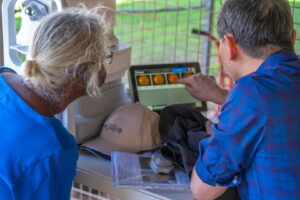FISH is working with the remote Aboriginal community of Bawoorrooga in the Kimberley, WA, to create a national prototype for sustainable Indigenous housing, education, training, and enterprise. Part of this program has been the planting of an integrated “food forest” orchard at the community, which contains around 500 plants of 30 different species. The community has been growing food since 2005, when they started growing their much-coveted mangos, citrus fruits and mulberries.
In 2018, FISH and Bawoorrooga extended the orchard by around one hectare, to create a diverse food forest and market garden. The new community garden consists of mostly fruit-producing trees, integrated with various other plants to increase the overall resilience and production capacity of the garden (for example, by providing additional benefits such as ground-cover, windbreak, nitrogen fixing, etc). As with all FISH community projects, the orchard design and plant selection came out of an involved co-design process with the community members.
In 2022, in collaboration with Phoenix Academy, FISH delivered a further horticulture program to expand Bawoorrooga’s orchard and nursery. As well as gaining valuable hands on horticultural skills, participants completed units towards their Certificate II in Workplace Skills.
By following the principles of conservation agriculture, the orchard creates resilience through biodiversity. Soil health is continually improved through the diverse plant selection, mulching, cover crops, shading and minimal soil disturbance. By moving away from monoculture, we have created a healthy micro-ecosystem which is able to produce reliable and delicious organic food without resorting to chemical fertilisers, herbicides or pesticides. The orchard includes the following plant varieties: gubinge (famous Kakadu plum), gindi (highly-prized local “bush plum”), Kimberley rose, mango (several varieties), banana, pineapple, cashew, star apple, jambolan (Java plum), Leichhardt pine, yellow flame tree, black wattle, galangal, mulberry, sweet potato, chili, basil, moringa, sesbania formosa, pigeon pea, arrowroot, Brazilian spinach, lemon grass and aloe vera.
Once mature, the orchard will greatly increase Bawoorrooga’s food production to be able to meet the needs of surrounding communities as well as eventually produce on a small commercial scale. The diversity of plant species will ensure that some form of produce is available all year round. The community also plans to extend the existing plant nursery in order to grow plants from seed on a larger scale. Nursery plants will go towards further expanding the orchard and will also be grown for sale as part of Bawoorrooga’s broader enterprise development plan.







